The new E10 petrol grade is being introduced across the United Kingdom from September 2021. The move is part of the government’s strategy to reduce harmful emissions from transport
Although the new E10 petrol retains the same 95-octane rating as existing unleaded petrol, it contains a much higher proportion of ethanol. Currently, all petrol supplied at filling stations contains a five per cent mix of ethanol, which is why it is known as E5. However, from September 2021, that proportion will be doubled in standard grade petrol. The fuel will be identified by the code E10.
This change will not affect Toyota owners with a diesel-powered vehicle.
Which Toyota models can use E10 petrol?
If your Toyota has a petrol engine or hybrid powertrain and was officially produced for European markets since January 1998, it will be compatible with E10 petrol.
The only exceptions to this rule are the following vehicles:
- Toyota Avensis with 2.0-litre 1AZ-FSE engine made between July 2000 and October 2008.
- Toyota Avensis with 2.4-litre 2AZ-FSE engine made between June 2003 and October 2008.
If your vehicle was produced before January 1998, it cannot use E10 fuel.
Can you use E10 petrol in imported cars?
If your car is an imported model that was not officially sold in European markets, we recommend staying on E5 by using super unleaded, which has a higher octane rating. Having received queries from owners regarding specific imported models, we are investigating this further.
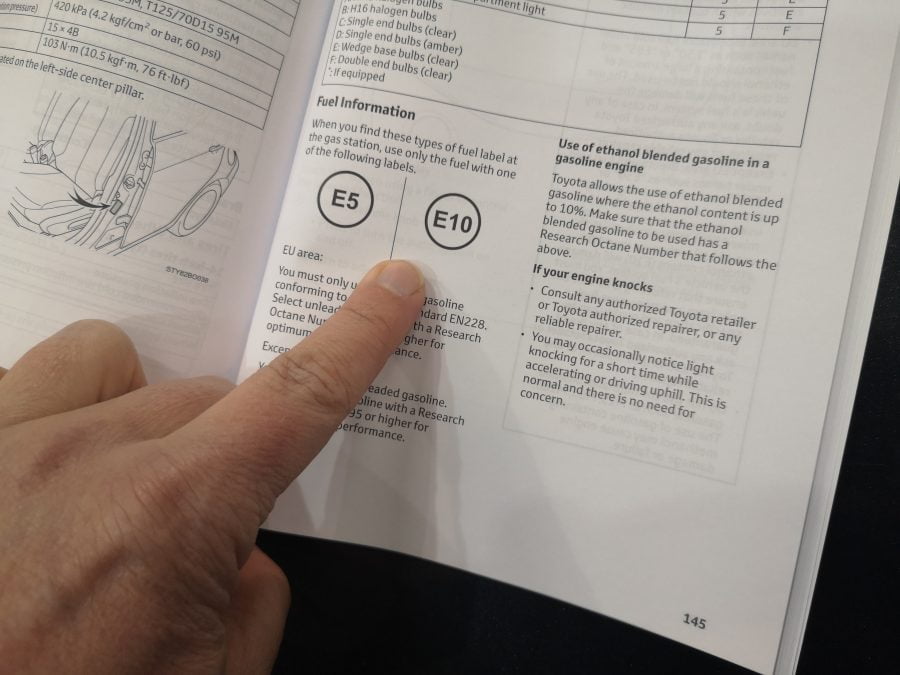
How can I check if my Toyota can use E10 petrol?
This can be confirmed by checking the owner’s manual or looking at the information printed on the inside of the fuel filler flap. If you are still unsure, use E5 petrol, which will continue to be dispensed from the super unleaded pump at many filling stations.
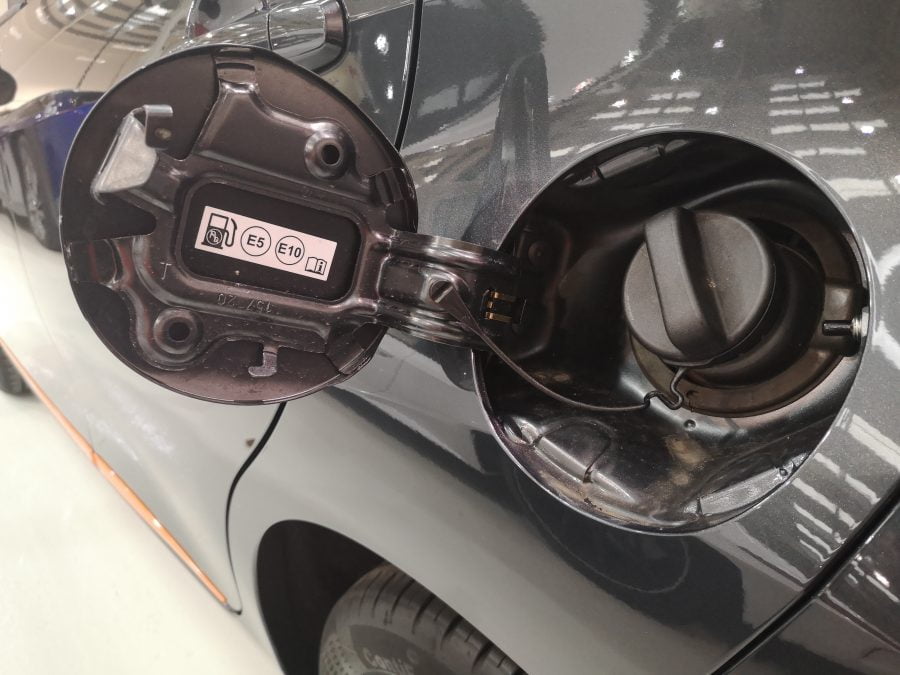
Why is the ethanol content being increased?
Ethanol is a renewable, non-fossil biofuel produced from sustainable sources. It is made using by-products from the farming industry, such as those from wheat, corn and sugar crops.
By increasing the proportion of biofuel in petrol, the content of fossil fuel and therefore our reliance on it decreases. This will reduce the overall levels of CO2 (carbon dioxide) emissions from vehicles and help the government achieve its climate change targets. It has been calculated that this change from E5 to E10 petrol will cut harmful transport emissions by 750,000 tonnes a year. That’s the equivalent of taking 350,000 cars off the road.
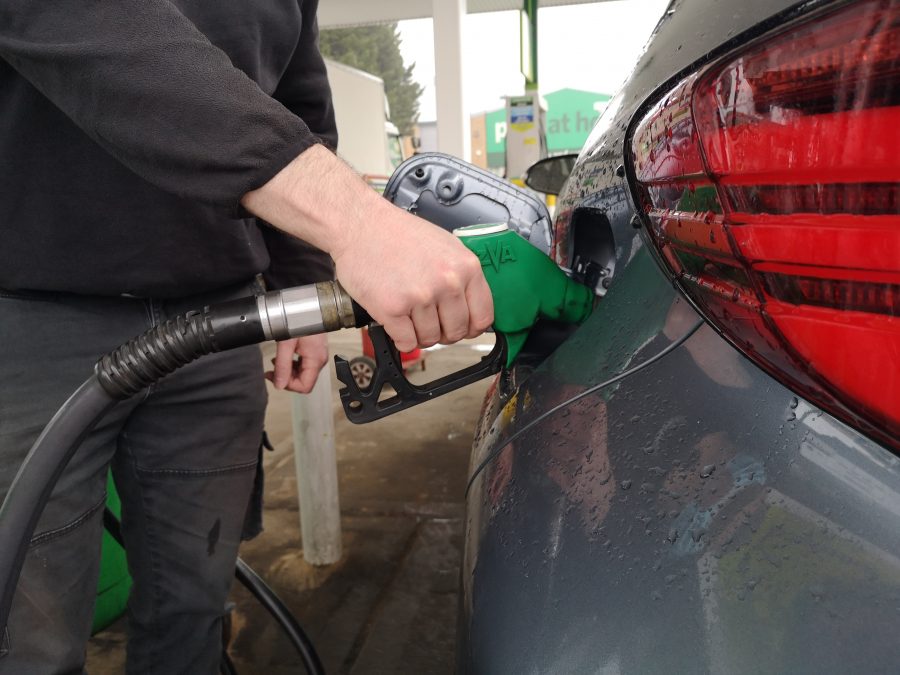
Why isn’t the ethanol content much higher?
The composition of ethanol is different to that of a crude oil based fossil fuel such as petrol. Higher blends of ethanol can cause corrosion of some rubbers and alloys used in the engine and fuel systems of some older vehicles.
A small number of these vehicles will need to continue using E5 petrol, and this will remain widely available at filling stations in super unleaded grade.
Is this change to E10 petrol only happening in the UK?
No. In fact, E10 petrol is already common throughout the world. It has also been the reference fuel used for all new car emissions and performance testing since 2016.
Useful link The government has a simple ‘E10 checker’ tool on its website here.
Read more Toyota hybrid – how does it work?
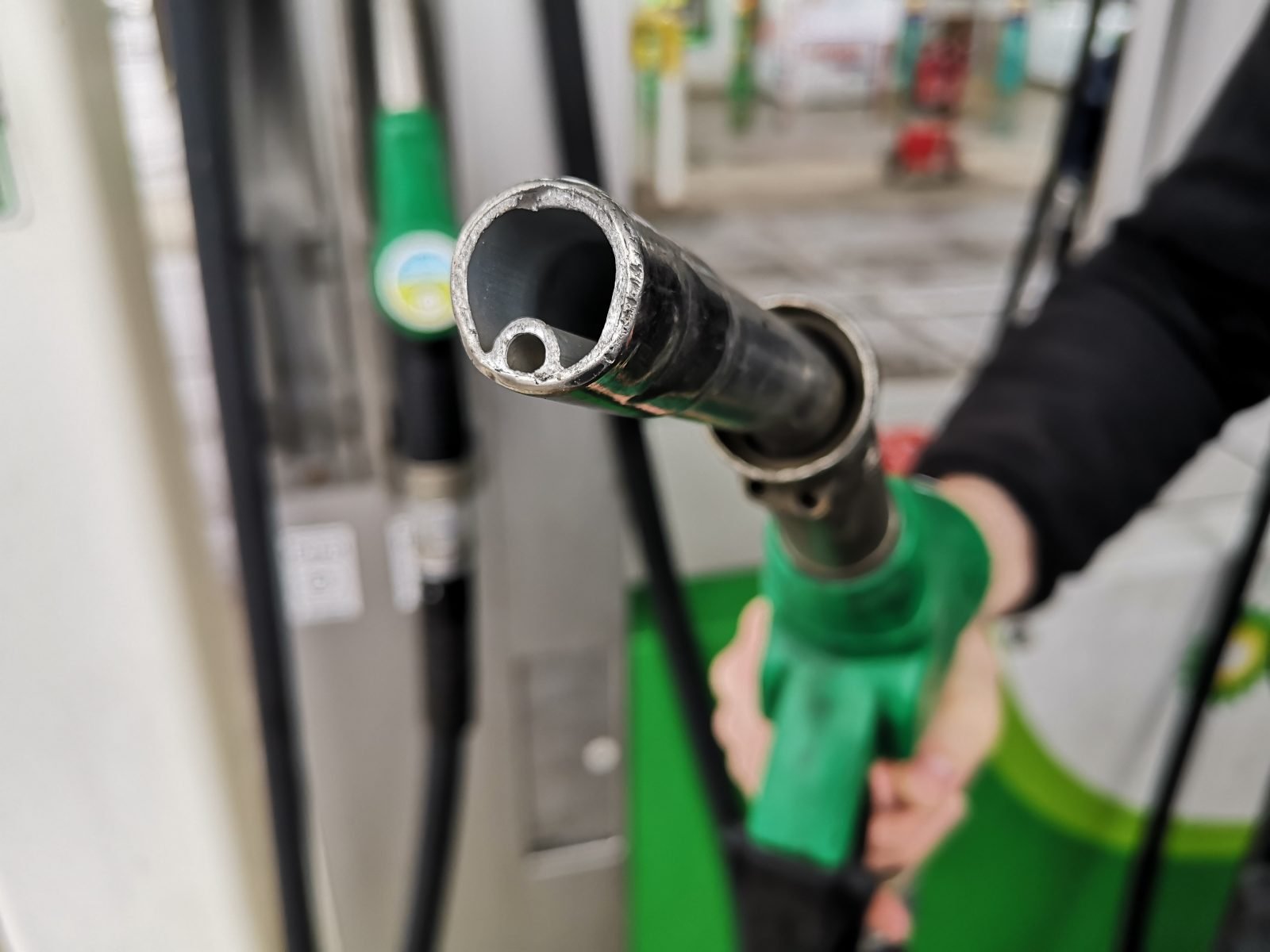
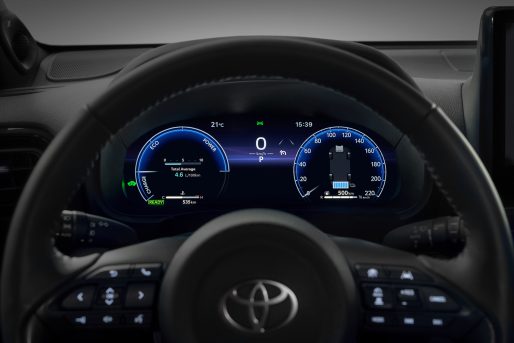


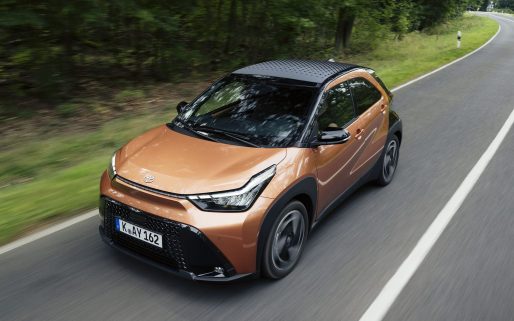
Hi Toyota!
I have a 2004 Toyota Yaris T sport, the engine in 1NZ-FE 1.5
Can I use E10 or shall I stick to E5?
Hello Adam,
Thank you for your query.
If your Toyota has a petrol engine or hybrid powertrain and was officially produced for European markets since January 1998, it will be compatible with E10 petrol.
Many Thanks
Toyota UK.
hello
I have toyota corolla GLI 2012 and I live in Iran unfortunately because of sanction we can not reach petrol octane number more than 85 therefore engine transmission system doesn’t work properly, can I mix 0.5 liters ethanol 90 percent with 50liters petrol in my car each time that I go to gas station to make E10 petrol?
Thank you in advance for your response.
Hi Yavari,
We would recommend contacting Toyota Iran to discuss this further.
Thanks,
Hello.
Can you tell me if my Avensis 1.6vvti petrol 2001 will be suitable to run on E10 please? I’ve read lots of post that although the engine will run on E10, it can degrade the rubber components in the fuel system.
Many thanks.
Hi Steve,
If your Toyota has a petrol engine or hybrid powertrain and was officially produced for European markets since January 1998, it will be compatible with E10 petrol.
Thanks,
Hi,
Although this is about the E5/E10, I would like to know from you about the high-octane petrols, be it 98 or 100. Are they good or bad for my Toyota Corolla 2.0 Hybrid (MY2021)?
Thanks
Hi Peter, we would recommend contacting the Service department at your local Toyota Centre to advise further.
Thanks.
Can I use E5 only in my Toyota Auris Hybrid 2018. Is it fine to use only E5
Hello Doctor,
Thank you for your question.
If your Toyota has a petrol engine or hybrid powertrain and was officially produced for European markets since January 1998, it will be compatible with E10 petrol. You can use either E5 or E10 petrol.
You can confirm this by checking your owner’s manual via this link: https://www.toyota.co.uk/customer/manuals or looking at the information printed on the inside of your fuel filler flap.
If you are still unsure, use E5 petrol, which continues to be dispensed from the super unleaded pump at many filling stations.
Many thanks,
Toyota UK
Which is the right fuel can I use E5 or E10 petrol for my imported vehicle Toyota estima ?
Hi Adel,
Thank you for your question.
If your car is an imported model that was not officially sold in European markets, we recommend staying on E5 by using super unleaded, which has a higher octane rating.
You can confirm this by checking your owner’s manual via this link: https://www.toyota.co.uk/customer/manuals or looking at the information printed on the inside of your fuel filler flap.
If you are still uncertain, please refer to this article: https://mag.toyota.co.uk/e10-petrol-what-is-it-and-can-i-use-it/
We hope you find this useful for your Toyota Estima!
Many thanks,
Toyota UK
Hi
I bought Japanese imported 2018 Toyota prius hybrid so can I use e5 or e10 petrol?
Hi Krish,
Thank you for your question.
If your car is an imported model that was not officially sold in European markets, we recommend staying on E5 by using super unleaded, which has a higher octane rating.
You can confirm this by checking your owner’s manual via this link: https://www.toyota.co.uk/customer/manuals or looking at the information printed on the inside of your fuel filler flap.
If you are still uncertain, please refer to this article: https://mag.toyota.co.uk/e10-petrol-what-is-it-and-can-i-use-it/
We hope you find this useful for your 2018 Toyota Prius Hybrid!
Many thanks,
Toyota UK
What type of fuel does my 2025 Toyota Yaris Hybrid 1.5 (automatic) take?
Hi Ameerah,
Thank you for your question.
Your car is compatible with either E5 or E10 petrol.
However, please confirm this by checking on the inside of your fuel-filler cap, and your owners manual: https://www.toyota.co.uk/customer/manuals
If you have any further questions, please do not hesitate to ask.
Many thanks,
Toyota UK